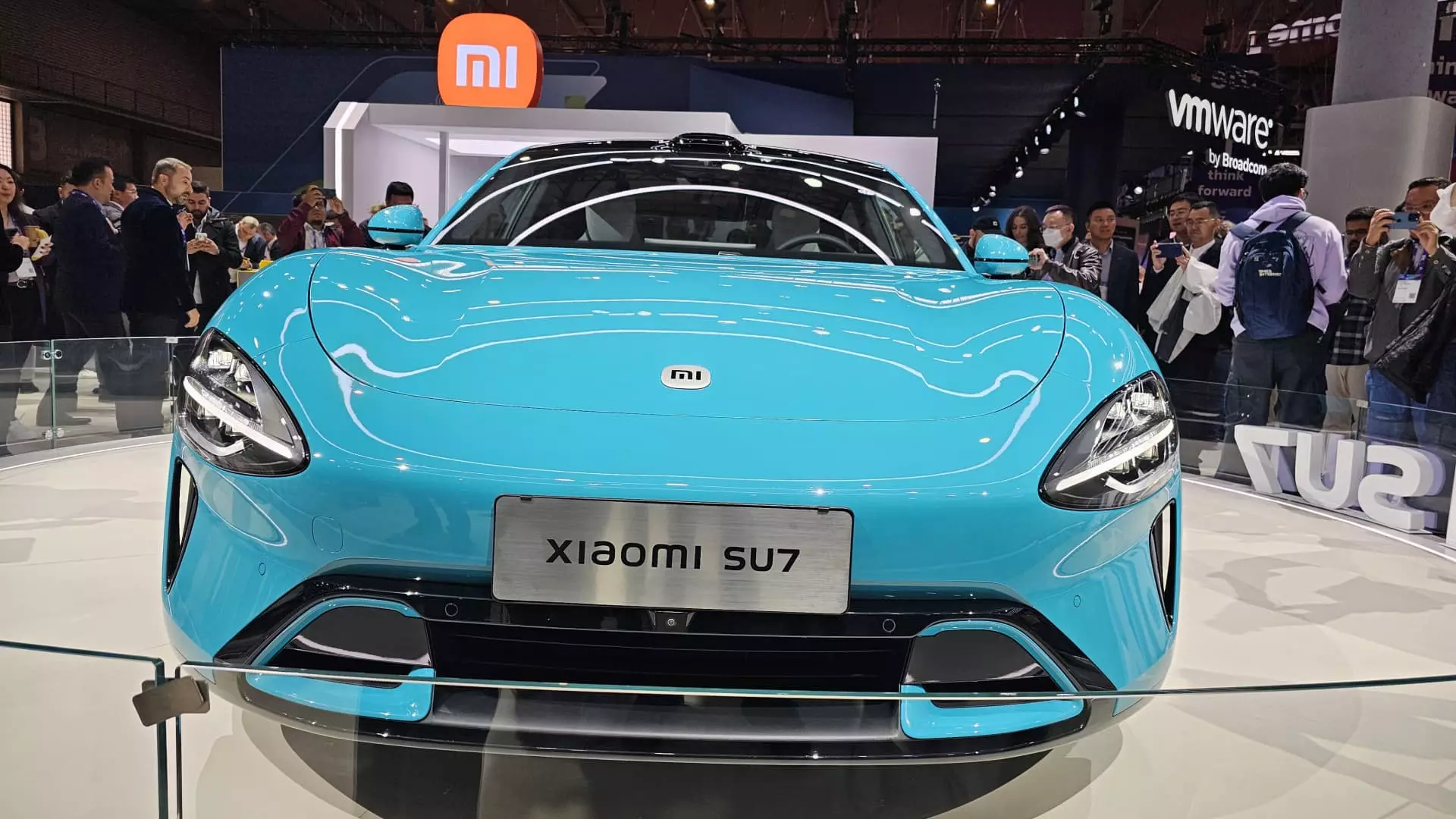Xiaomi, a Chinese smartphone company, has seen remarkable success with its new electric vehicle, the SU7 sedan. With over 70,000 orders received as of April 20, Xiaomi is on track to surpass its original full-year delivery target. CEO Lei Jun announced that the company now aims to deliver 100,000 units of the electric vehicle this year, showcasing the strong demand for this product. Despite pricing the SU7 at a significant discount compared to Tesla’s Model 3, Xiaomi has managed to attract a large number of customers, indicating a promising future for its electric vehicle venture.
Analysts at Citi predict that Xiaomi’s auto segment will reach breakeven if annual sales reach 300,000 to 400,000 units. They have revised their gross profit margin forecast for the autos segment to 6% for this year, a significant improvement from the 10% loss previously expected. This positive outlook has also led to a 25% increase in the earnings per share forecast for Xiaomi. The company’s aggressive sales targets of 100,000 units this year, 200,000 next year, and 280,000 in 2026 signal its determination to establish a strong presence in the electric vehicle market.
In comparison to other electric vehicle manufacturers in China, Xiaomi’s performance stands out. While Tesla China sold over 600,000 cars last year, Li Auto and Nio delivered 376,000 and 160,000 cars, respectively. Despite being a newcomer in the automotive industry, Xiaomi’s ability to compete with established players and garner significant demand for its electric vehicle speaks volumes about its competitive strategy. With a gross profit margin estimate of 5% to 10%, Xiaomi is well on its way to solidifying its position in the market.
Looking ahead, Xiaomi has ambitious plans for its electric vehicle venture. The company aims to focus solely on the domestic market for the next three years before considering international expansion. CEO Lei Jun emphasized Xiaomi’s global influence and fanbase, indicating that the company has strong foundations for global expansion in the future. With plans to release an SUV in the second half of 2025, Xiaomi is committed to continuous innovation and growth in the electric vehicle sector. By maintaining a level of confidentiality around its upcoming products, Xiaomi aims to replicate the success of the SU7 launch and solidify its position as a key player in the automotive industry.
Overall, Xiaomi’s success with its new electric vehicle underscores the company’s strategic vision, competitive pricing strategy, and commitment to innovation in the electric vehicle market. With strong demand, positive financial projections, and ambitious growth plans, Xiaomi is poised to become a significant player in the global automotive industry in the coming years.


Leave a Reply